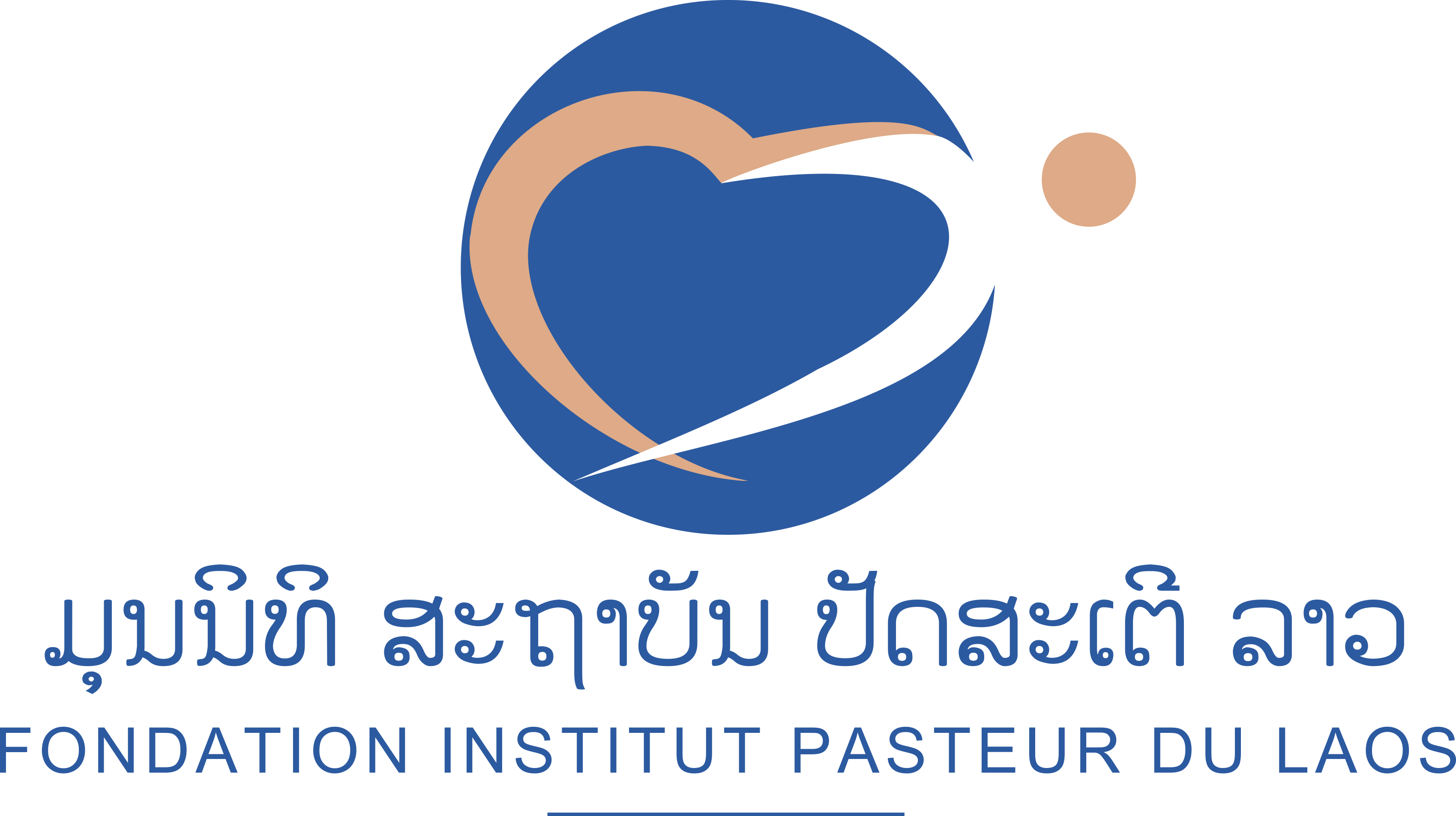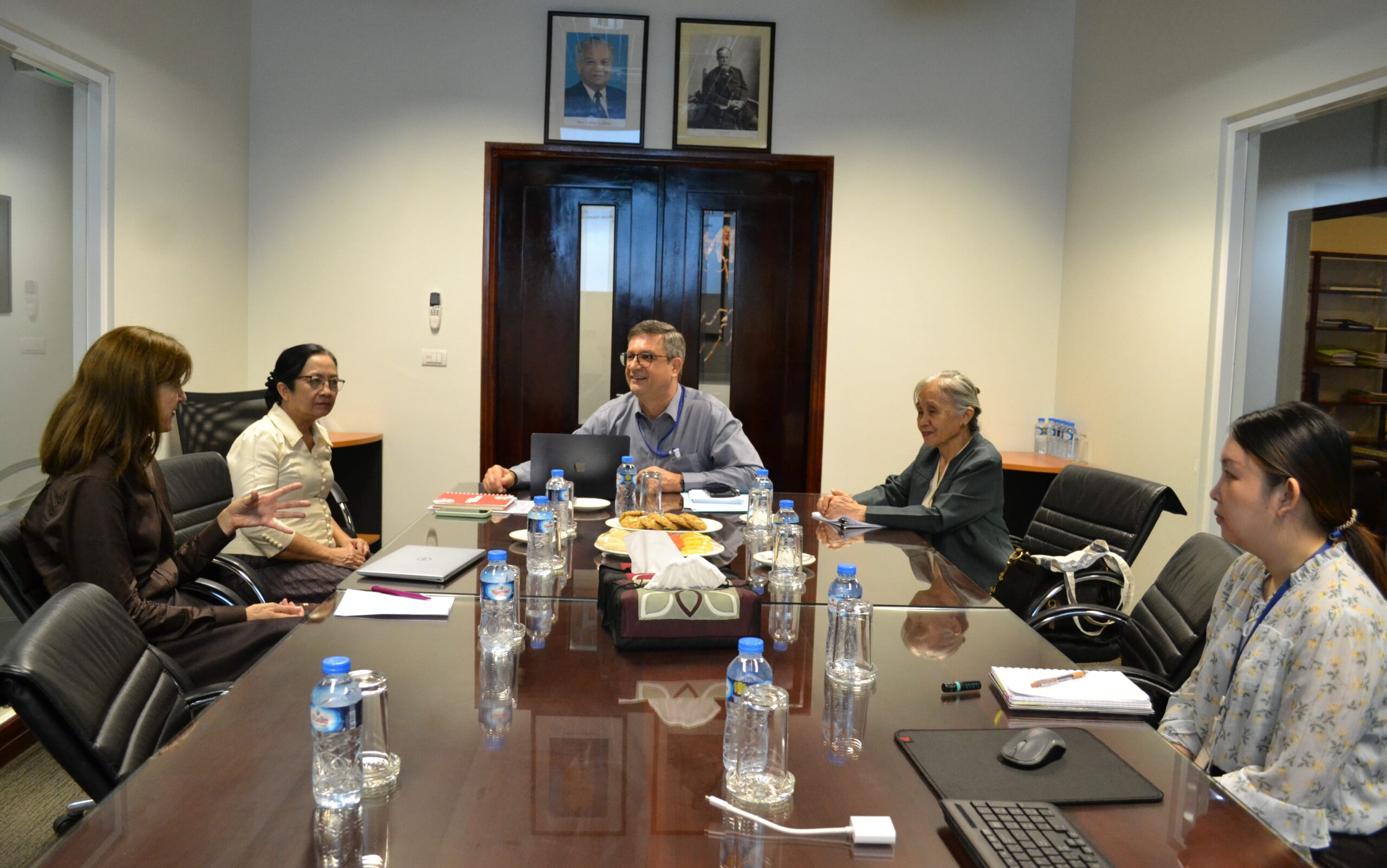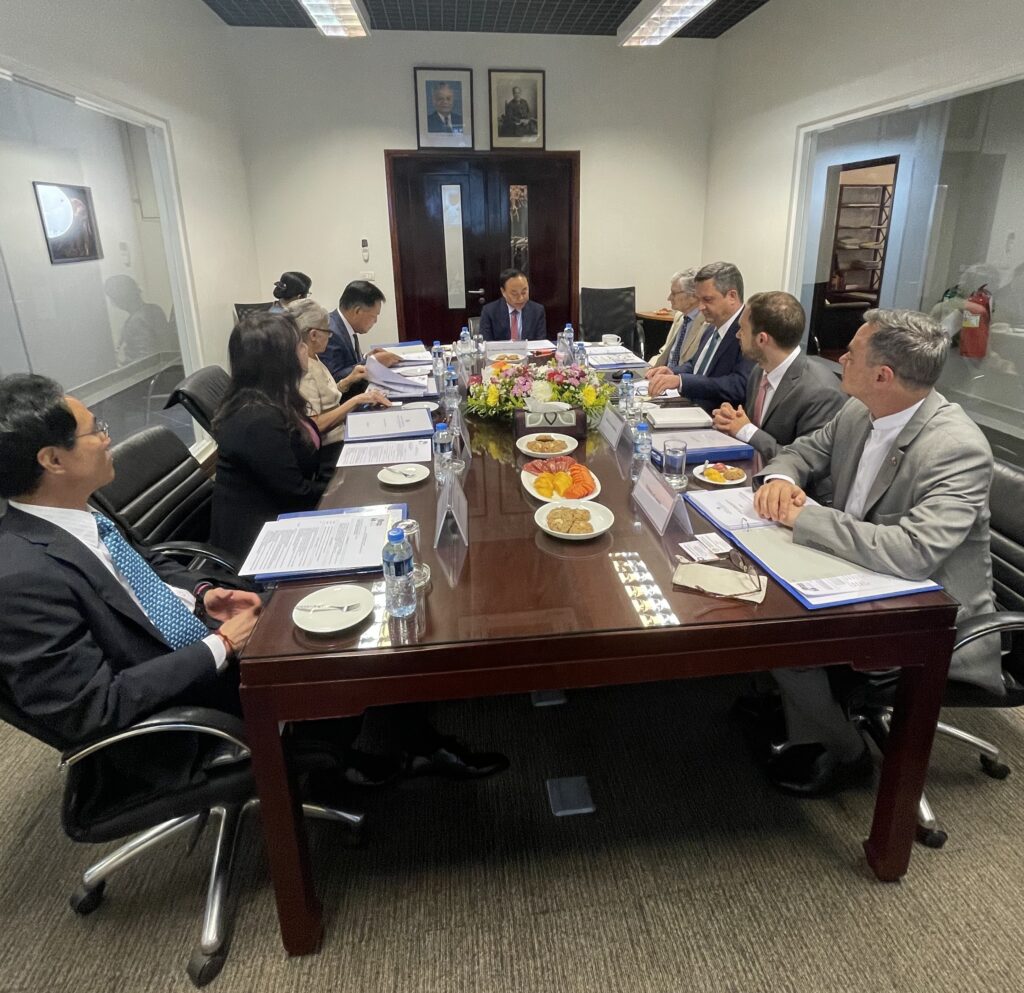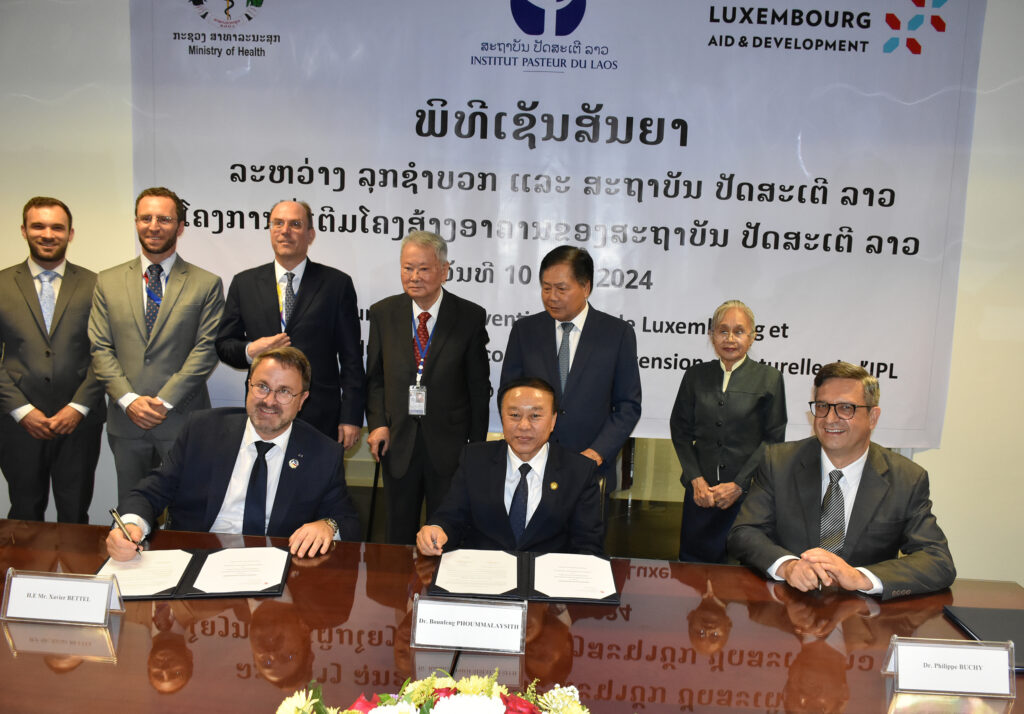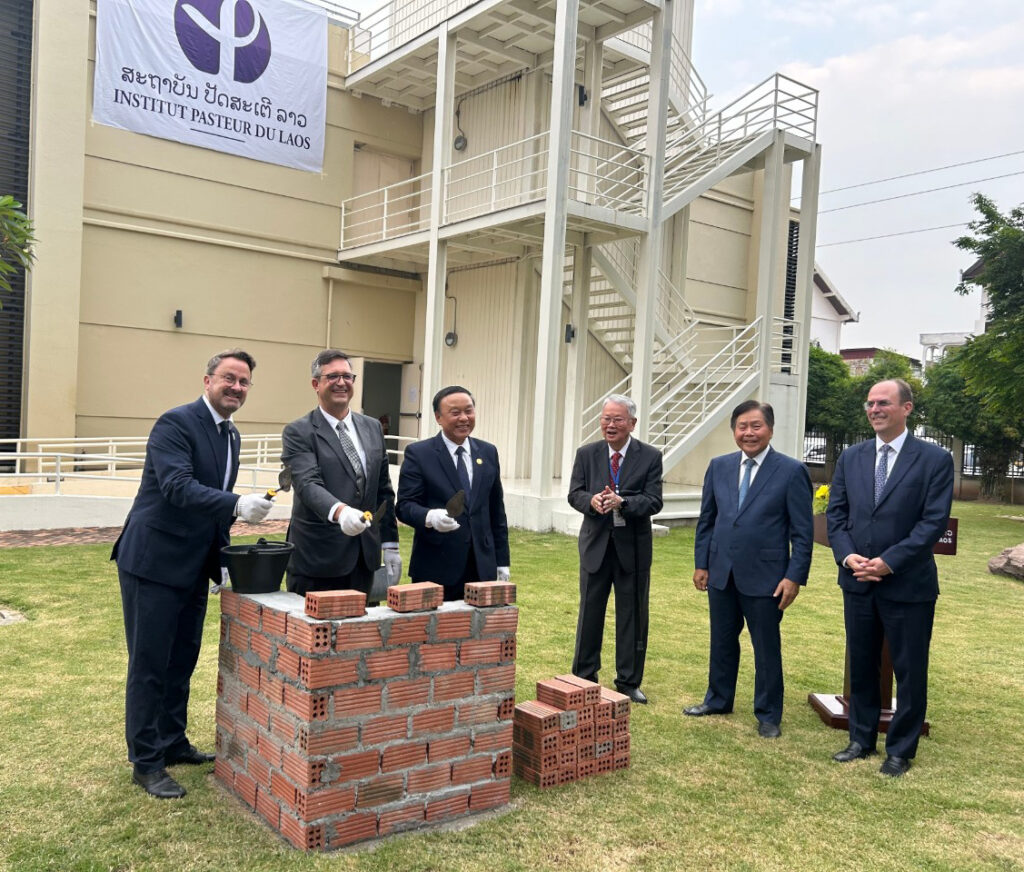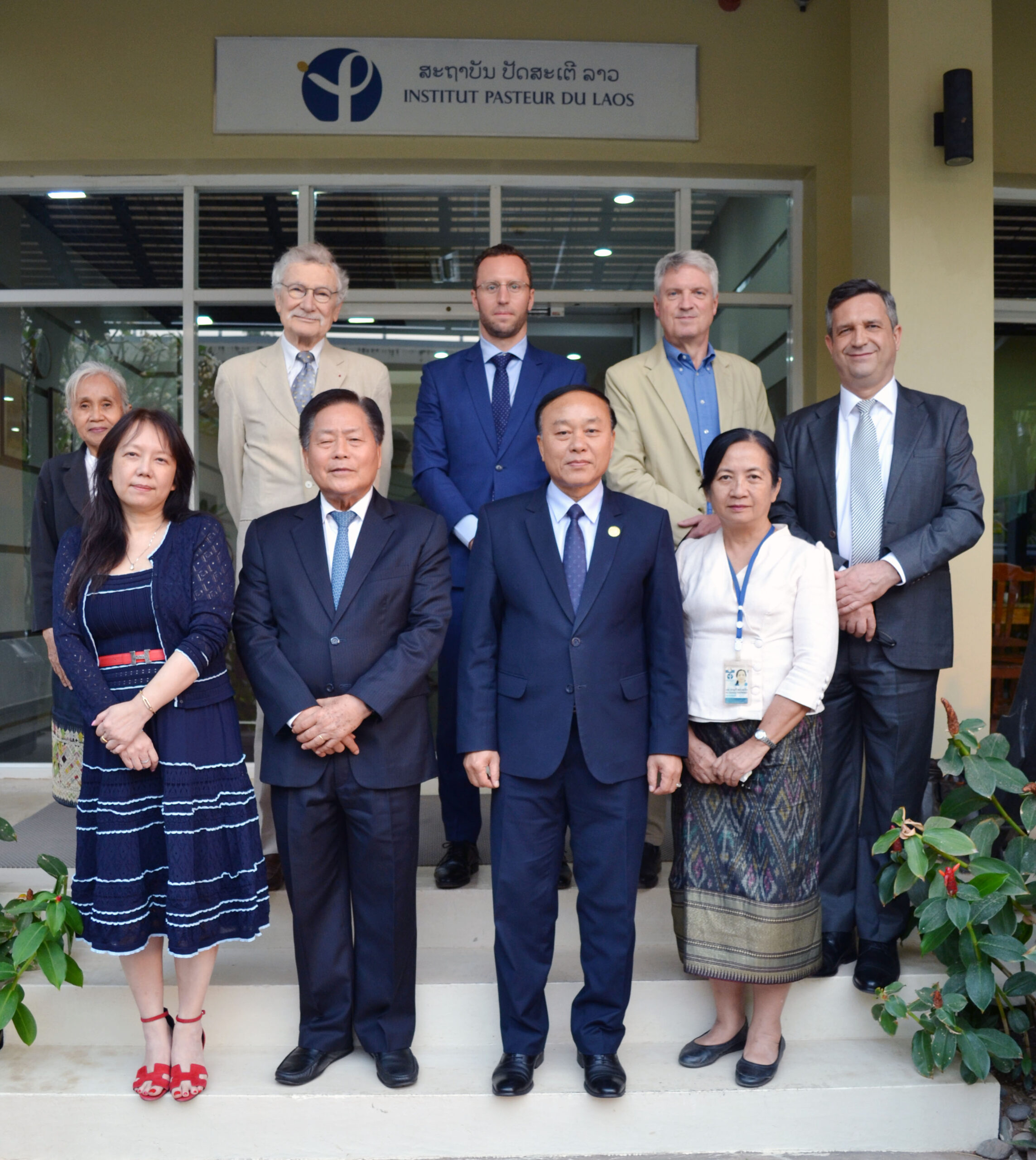Lao – Lux lab / Vaccine preventable diseases 2016
Head of Laboratory: Professor Claude MULLER, Scientific Director
Representative of Laboratory: Dr Antony BLACK
Email: 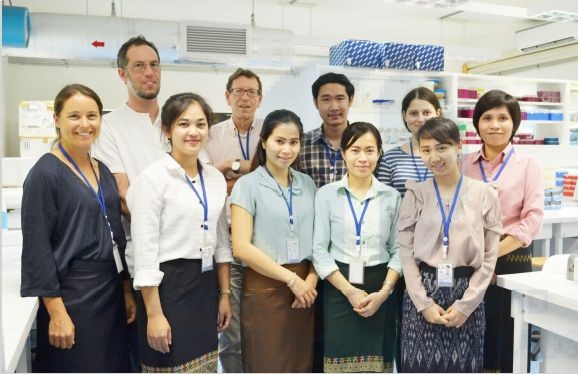
Executive summary:
The LaoLux Laboratory is operated by the infectious disease research unit at the Luxembourg Institute of Health, Luxembourg (LIH) and aims to build capacity for investigations of important human and animal infectious diseases and to initiate and support collaborative research projects in Lao PDR. The laboratory carries out research in Lao PDR focusing on vaccine-preventable infectious diseases, zoonotic diseases, identification of new viruses and variants and other investigations. These studies are important to estimate the burden of specific infections, to promote virus outbreak control, to improve animal health welfare and productivity, to support public health policies and vaccination programmes and to optimize health strategies.
During the period 2016-2017, the Lao Lux laboratory continued its activities focusing on research with public health significance. As an extension of our previous studies on diphtheria and hepatitis B seroprevalence, we completed data analysis from a large project investigating the immunogenicity of childhood vaccinations in three provinces; Khammuane, Vientiane and Bolikhamxay. This study found very low immune responses to tetanus, hepatitis B and diphtheria components of the childhood pentavalent vaccine (DTP-HepB-Hib). These data have important implications for the management of the vaccination programme in Lao PDR and require further studies to determine the cause of low immunogenicity.
We also completed a study investigating the aetiology of respiratory infection in children. This project, in collaboration with the Children’s Hospital, helps to give a picture of the pattern of viruses and bacteria that commonly are responsible for respiratory infections in children and can help as an empirical guide to diagnosis and treatment for the clinicians.
Our collaboration with the Faculty of Agriculture, University of Health Sciences has continued, with surveillance studies in pigs, cows and poultry. We have also started to do surveillance in individuals who have contact with swine, to determine the risk and prevalence of zoonotic infections.
Our training activities in this period included giving “Immunology” and “Vaccinology” seminars to first year Master’s students from Institut de la Francophonie pour la Medicine Tropicale (IFMT) and also supervising 2 second year Masters students. The subjects of their theses were; “Prevalence and risk factors of Hepatitis B virus infection in Champasack province, Lao PDR” and “Knowledge, attitude and practice regarding vaccination among healthcare workers in Lao PDR”. We also ran a 4 week training course for 5 Masters students from the University of Health Sciences. The topics included practical and theoretical molecular biology, immunology and virology.
Our staff have attended training courses in Molecular Biology (Centre Merieux, Vientiane and Wellcome Trust, Vientiane, Lao PDR), Mathematical Modelling of Infectious Disease (Institut Pasteur, Ho Chi Minh, Vietnam) and presented data at the Hepatitis Regional Workshop (Vientiane, Lao PDR) the National Health Research Forum (Savannakhet, Lao PDR) the Pasteur International Network Meeting (Paris, France) and the Asian Congress of Pediatric Infectious Disease (Bangkok, Thailand).
Financial support
The laboratory is funded by a grant from the Government of the Grand Duchy of Luxembourg.
Team:
Scientist
1. Dr. Antony Black, Responsible of the Lab
2. Dr. Phonethipsavanh Nouanthong, Post-doctoral researcher
Junior Scientist
1. Dr. Kinnaly Saidalasuk
2. Dr. Vilaysone Khounvisith
3. Dr. Phonepaseuth Khampanisong
Technician
1. Ms. Latdavone Khenkha
2. Ms. Bounta Vongphachanh
Visiting scientists from Department of Infection and Immunity, Luxembourg:
1. Mr. Konstantin Evdokimov.
2. Dr. Maude Pauly
Project carried on in the lab
+ Pentavalent immunogencity in the Lao People’s Democratic Republic: a cross-sectional study
+ Aetiology of respiratory infections in Lao PDR
+ Animal infections in Lao PDR

